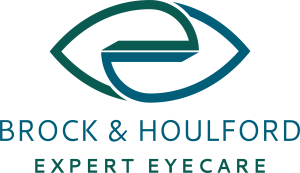SUNGLASSES
Exceptional Eyecare in a Modern Setting
At Brock & Houlford, we’re committed to offering our patients the very best in eyewear. That’s why we stock only the most respected and trusted designer eyewear brands – known globally for their superior craftsmanship, comfort, and style. From timeless classics to bold, modern frames, our handpicked collections include names like Moscot, Lindberg, and Maui Jim, with styles to suit every face shape, lifestyle, and prescription. Whether you’re looking for everyday glasses or luxury statement pieces, our expert team will help you find the perfect pair.
FAQ's
Why should I wear sunglasses?
Sunglasses and tinted lenses protect your eyes from harmful ultraviolet light. Long term exposure to the UV light can cause cataracts, skin cancer and damage to the retina – the layer of nerve cells at the back of your eye. To protect your eyes from the sun’s harmful rays, you should wear good quality sunglasses when outdoors.
When should I wear sunglasses?
As well as wearing sunglasses in the sun, they should also be worn in the shade and on cloudy days, as the harmful UV light can penetrate through the clouds. Sunglasses should be considered a year-round necessity. Ski goggles with full UV protection are essential for those who ski or do any snow sports, as the snowy conditions will reflect the UV rays.
Should children wear sunglasses?
Children tend to spend more time outside than adults so can be more vulnerable, therefore, their eyes need protection from the sun with good quality sunglasses. Very small children and babies should not be in the sun at all. Goggle style sunglasses can be more practical for smaller children to wear and keep on.Toddlers and older children should use sun cream, a hat and sunglasses for maximum protection from the sun.
How do I choose a suitable pair?
All sunglasses should meet British Standards (BS EN ISO 12313-1) so always look out for the CE mark when buying a pair. This is to ensure you get full UVA and UVB protection. By law, all sunglasses should be labeled with the filter category number. They should also fit your face well to make sure the sunlight cannot reach your eyes and therefore reduce glare. Your dispensing optician can advise you.
Can I have my prescription made into sunglasses?
Yes. You will also be able to choose the colour and depth of the tint depending on your lifestyle. Your dispensing optician will advise which is best for you.
Can I drive in my sunglasses?
Most sunglasses are suitable for daytime driving, the most suitable are category 2. You should not drive in very dark tinted sunglasses (category 4). All sunglasses are unsuitable for driving at night.
Should I have polarised lenses?
If you do a lot of fishing, sailing, cycling, driving or struggle with glare, you should consider polarised lenses as they will help reduce the reflections, for example, from water or a wet road. A mirror coating on polarised lenses will help to eliminate UV from being reflected on bright, sunny days. Polarised lenses are not suitable for driving at night.
What are photochromic lenses?
Photochromic lenses darken automatically in sunlight and go clear again when you go indoors. They are ideal if you are light sensitive or do not want to keep changing from one pair of spectacles to another. Many patients find this type of lens suits them, but it is worth considering the transition times.
Additional Tips
- Never look directly at the sun, even for a short time, as it can cause serious and permanent damage to your vision.
- Pair your sunglasses with a wide brimmed hat for extra protection
- Have regular eye exams. Early detection and management of any potential eye conditions related to sun exposure is crucial.
- Ask our dispensing opticians for advice on which sunglass frames and lenses will suit you best.
- Remember, sunglasses are not only a fashion statement, they protect your eyes from harmful UV radiation.


